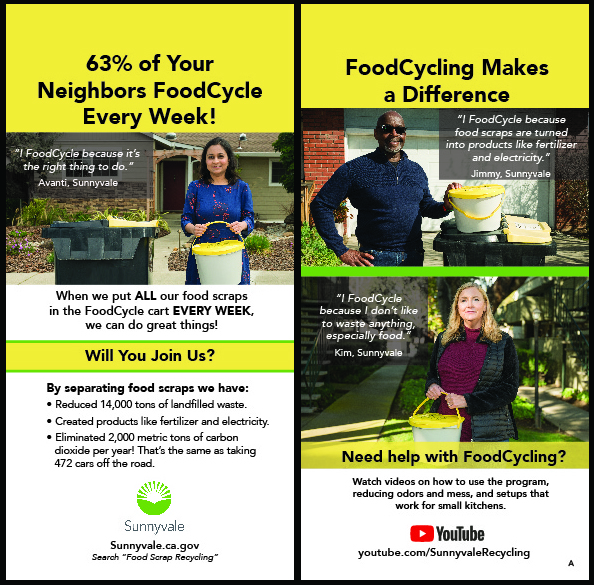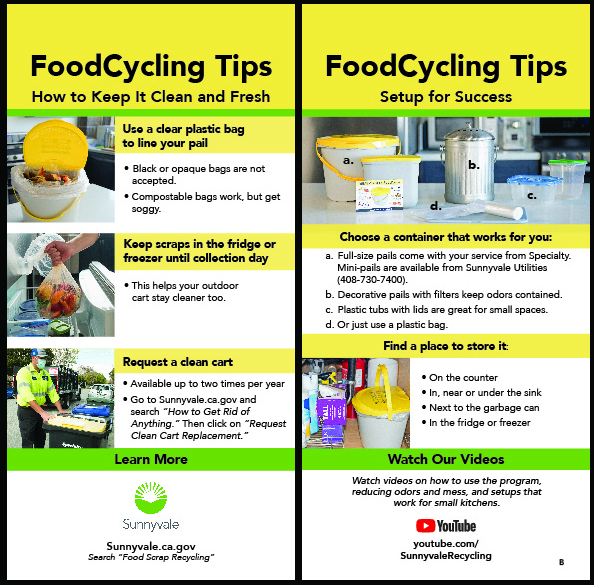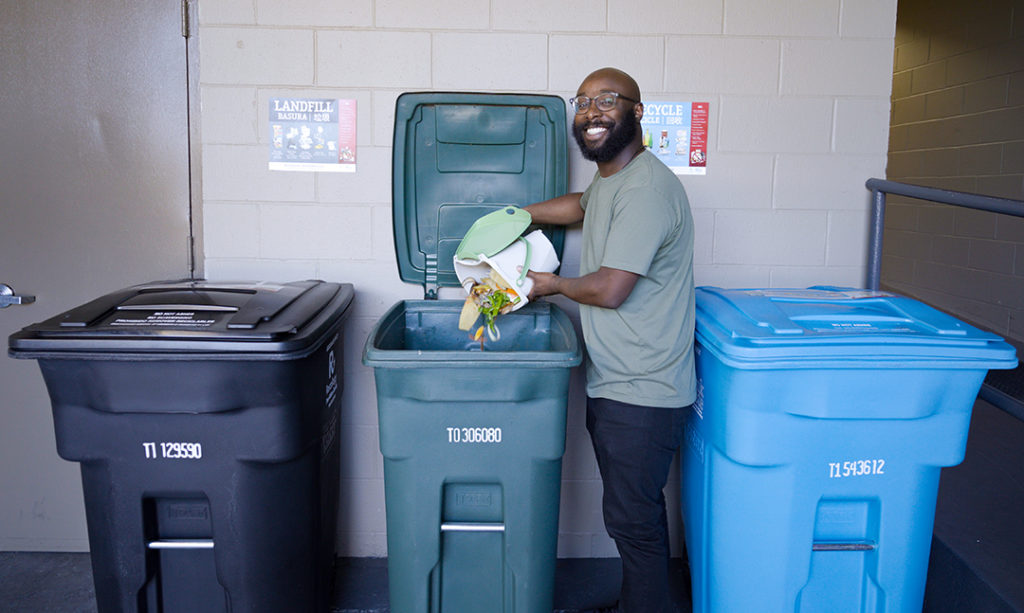Gigantic Idea Studio teamed up with Sunnyvale, California with the challenge to refresh their “FoodCycle” food scrap collection program outreach and improve participation rates. The question was, how?

After surveying residents, we found that self-reported participation was actually fairly high at 63%, but cart audits showed a lower citywide participation rate of 57% and weekly participation of 45%.
The City wanted more program collateral, how-to videos and a presentation to help them communicate about the program, but also wanted to explore behavior-change tactics in a pilot program. Our team proposed a communications campaign as a baseline strategy, that would be supplemented with cart tagging in two pilot areas. The pilot would determine whether or not cart tagging improved participation more than advertisements, articles and videos. Together, we set a goal to raise weekly participation by 5%.
The two pilot areas were given two different messaging strategies: Social Norming and Benefit messaging vs. Addressing Barriers messaging. The social norming tag showed residents and their quotes about why they FoodCycled—and then listed the benefits of participation, such as reducing waste and fighting climate change. It also clearly stated that 63% of residents participate, a clear majority of support and enthusiasm. The second group received messaging related to overcoming barriers to participation, such as tips to avoid mess, smells and pests, and alternative collection containers for smaller kitchens or those concerned with aesthetics.

Although both strategies are part of the popular “Community-Based Social Marketing” practices, the cart audits showed that the “Barriers” messaging worked better in Sunnyvale. The households that received a cart tag with tips saw an increase of 9% (from 44% to 53%) in weekly participation and 7% in overall participation, when compared to the baseline.
Both types of messages were included in the communications campaign, but the pilot project shows that cart tagging adds effectiveness that can be measured. This is likely related to the personal and contextual message delivery method—the cart—which is related to the behavior change we are asking for.
Many cities will be conducting cart audits as part of SB 1383’s statewide requirements. Adding friendly, yet effective messaging designed to increase participation in organics programs is a good way to maximize the investment of labor required to do these audits. This messaging can be combined with contamination feedback and included on the back side of any cart tag.
We have experience designing these tags and providing guidance on how to determine messaging that resonates in your community. We’d love to hear from you!
